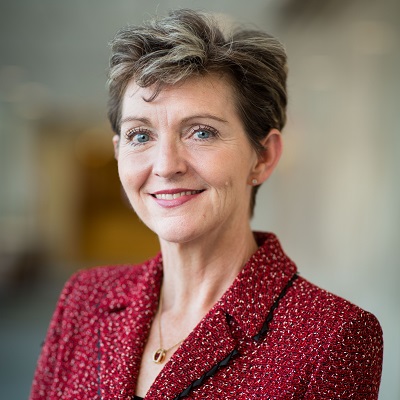2018 AAHSL Annual MeetingEducational ProgramRegister | Pricing | Hotel Info | Program | Matheson Lecture | Educational Program About the ProgramTo be effective in our work and relationships, we must be able to recognize and meet the needs of many types of people, some of whom come from very different backgrounds, cultures and beliefs. This session will provide some strategies to be effective even when you are “out of your comfort zone." We all have multiple identities and “cultures.” Recognizing and embracing our own identities and cultures provide us a springboard for exploring others’. Also referred to as implicit bias, unconscious biases are a side-effect of adaptive, “hardwired,” automatic human cognitive processes. These cognitive processes are effortless, fast and often operate below the level of conscious awareness to focus, filter, categorize and generally manage the millions of bits of information we are exposed to every moment. This interactive presentation will provide an overview of the nature and impact of unintended and unconscious biases and the specific ways unconscious biases can affect daily work life and patient care. Participants will gain insights into how being on the receiving end of stereotypes and attitudes toward a group to which they belong (e.g. female, racial or ethnic minority, white male, elderly, LGBTQ) can affect their own job performance - and how to prevent its effects. Specific steps will be shared so that individuals reduce the likelihood their thoughts and behaviors will be hijacked by unconscious biases (when these biases are not consistent with their conscious motives and intentions).
About the Presenter
Dr. Sharonne N. Hayes is Professor of Cardiovascular Medicine and founded—and maintains—an active clinical practice in the Women’s Heart Clinic at Mayo Clinic in Rochester, MN. She was appointed as Mayo Clinic’s first Director of Diversity and Inclusion in 2010. With leadership she sets strategy for D&I activities across Mayo Clinic and develops solutions for equity in patient care and the workforce. Under her leadership, Mayo Clinic has been nationally recognized for its D&I accomplishments, including seven consecutive years as a Diversity Inc. Top Hospitals and Healthcare Systems. Dr. Hayes is a member of several national initiatives and groups involved in education, strategic planning, and program development for improvement of health care and reduction of health disparities. She helped develop the NHLBI’s Heart Truth (“Red Dress”) campaign, is active with AHA’s Go Red Campaign, and served on the Board of Directors for WomenHeart: The National Coalition for Women with Heart Disease. Dr. Hayes is a nationally recognized educator and speaker on diversity, women’s health and cardiovascular issues and has developed numerous medical educational programs on women’s health and health equity topics for both medical professionals and the public. Dr. Hayes received her medical degree from Northwestern University in Chicago and pursued fellowships in Internal Medicine, Cardiovascular Research, and Cardiovascular Diseases at Mayo Clinic Rochester, joining the Mayo staff in 1990. She is a Fellow of the American College of Cardiology and the American Heart Association, has served in a number of volunteer leadership roles for AHA at the local, regional and national level and is a member of the Association of Black Cardiologists. She is married to David, also a cardiologist, and has 2 adult children, Sarah and Drew. |

 Sharonne N. Hayes, MD, FACC, FAHA
Sharonne N. Hayes, MD, FACC, FAHA